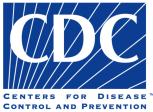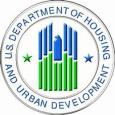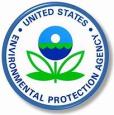Lead Poisoning Prevention Program
The Healthy Homes and Lead Poisoning Prevention Program is a resource to help address the risk of lead poisoning in young children, pregnant women, and adults who work or have hobbies that involve lead.
While there can be more than one source contributing to a child’s elevated blood lead — in New Hampshire, children are almost always poisoned by lead dust generated from old lead paint in their homes.
Even though lead poisoning in young children is entirely preventable, on average, over 800 children a year in New Hampshire are poisoned from lead paint in older homes, resulting in elevated blood lead levels high enough to impair their ability to think, learn, and concentrate.
With some of the oldest housing stock in the country, more than half of New Hampshire’s housing were built before the 1978 ban on lead in residential paint. Across the state, a minimum of 32,350 young children are living in older homes with lead paint.
Young children, especially those under six years old that are living in these older homes are at risk for lead poisoning through sitting, crawling, and playing on the floor and in areas where lead paint dust collects. This includes soil contaminated with lead in the play areas around their home. Children’s hand-to-mouth behavior and placing objects in their mouths puts them especially at risk.
New Hampshire adults who work or have hobbies that involve lead or decorate with antiques that contain lead are also at risk for lead poisoning, but more importantly are at risk for poisoning the young children in their lives.
Happy Healthy Lead Free Me!
Newly released, ‘Happy, Healthy, Lead-Free Me!’ children’s board book with simple steps and resources for parents. Also available as an ebook in multiple languages.
The Healthy Homes and Lead Poisoning Prevention Program is a resource to help families, health care providers, contractors, developers, health and code officials and property owners address the risk of lead poisoning. The Healthy Homes and Lead Poisoning Prevention Program can be a resource with the following:
- Nurse Case Management for children with elevated blood lead levels that connect families to the resources they need to provide these children with a positive outcome.
- Environmental Inspections of rental properties where children reside that have an elevated blood lead level to help identify where the source of lead exposure is.
- Licensing and Certification of lead paint professionals that include abatement contractors; supervisors, workers, risk assessors, lead inspectors, and trainers.
- Compliance Inspections of lead paint professionals to ensure quality work that is conducted in accordance with State rules and statute.
- Surveillance Monitoring and Reporting of all reported child and adult blood lead levels.
- Professional and Public Education to increase awareness of the hazards of lead and primary prevention activities to prevent lead poisoning.
Healthy Homes & Lead Poisoning Prevention Program (HHLPPP)
For more information call (800) 897-LEAD (5323) within New Hampshire or at (603) 271-4507.








